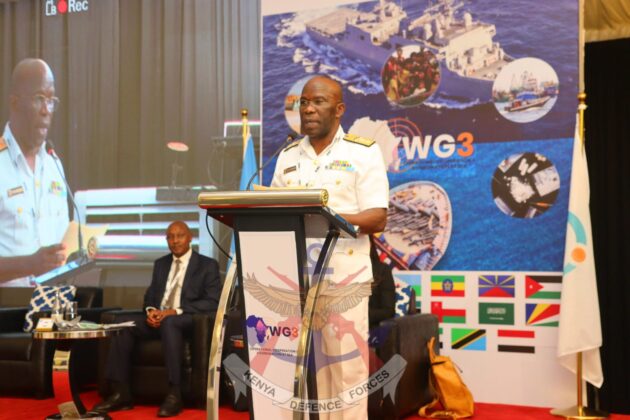
Kenya hosts inaugural Djibouti code of conduct working Group 3 workshop in Mombasa » Capital News
MOMBASA, Kenya, Sep 2 – The Commander of the Kenya Navy, Major General Paul Otieno, on Monday officially opened the inaugural four-day workshop for Working Group 3 under the Djibouti Code of Conduct Jeddah Amendment (DCoC/JA).
The event, being held at Serena Beach Resort and Spa in Shanzu, Mombasa, brings together maritime security stakeholders from across the Western Indian Ocean region and beyond.
The Kenya Defence Forces (KDF) said that the Working Group 3—focused on operational cooperation and coordination at sea.
It was established following a call made during the high-level DCoC/JA meeting in Dar es Salaam in November 2024
In his remarks during the ceremony, Major General Otieno stated that the workshop provided a unique opportunity to lay the operational foundation for Working Group 3 and to craft a roadmap that would translate the strategic intent into coordinated action at sea.
“He stated that the workshop provided a unique opportunity to lay the operational foundation for Working Group 3 and to craft a roadmap that would translate the strategic intent into coordinated action at sea,” KDF said.
Major General Otieno reaffirmed that it is through collaboration, interoperability and mutual trust that nations can effectively respond to the complex and evolving threats within the Western Indian Ocean and beyond.
Denmark’s Special Representative for Maritime Security, Ambassador Nicolai Ruge, highlighted the growing role of national, regional, and international naval forces in supporting maritime law enforcement and regulatory agencies.
He stressed the need for stronger coordination between navies and law enforcement authorities to boost maritime security.
Djibouti Code of Conduct Chairperson Nepfumbada Lindelani Mashudu of South Africa underscored the importance of achieving concrete results through Working Group 3.
She urged participants to embrace the “three Cs”—Coordination, Collaboration, and Cooperation—emphasizing that these principles would enable a harmonized framework to tackle maritime security threats and illicit activities.
Mashudu also called on stakeholders to fully implement the expanded scope of the Jeddah Amendment, noting its significance in safeguarding the maritime domain as a foundation for sustainable development.
Other dignitaries who delivered opening remarks included Mr. Sascha Weh of the United Nations Institute for Training and Research (UNITAR), Mr. Raj Mohabeer of the Indian Ocean Commission, and Mr. Kiruja Micheni of the International Maritime Organization (IMO).
Day one of the workshop featured presentations from various Djibouti Code of Conduct member states.
Signatory states represented included: Bahrain, Comoros, Djibouti, Ethiopia, Jordan, Kenya, Madagascar, Maldives, Mauritius, Mozambique, Oman, Saudi Arabia, Seychelles, Somalia, South Africa, Tanzania, and Yemen.
Key partners present were: IMO, Regional Maritime Information Fusion Centre, Regional Coordination Operations Centre, United States Africa Command, African Centre for Strategic Studies, Combined Maritime Forces, CRIMARIO, Denmark, EU Naval Force ATALANTA, Indian Ocean Commission, INTERPOL, India, UK Maritime Trade Operations, UNITAR, and the United Nations Office on Drugs and Crime (UNODC).